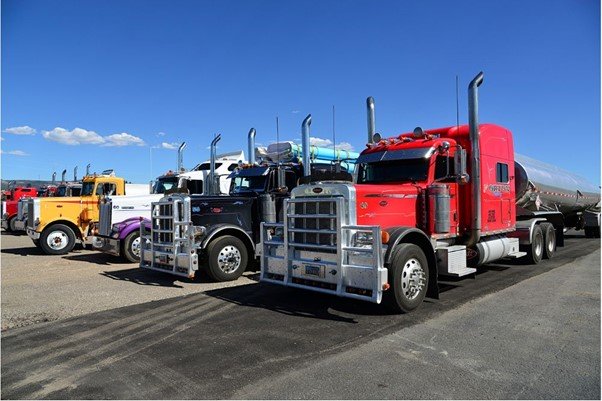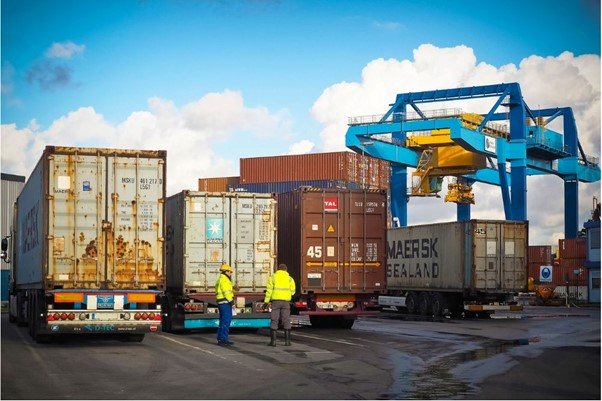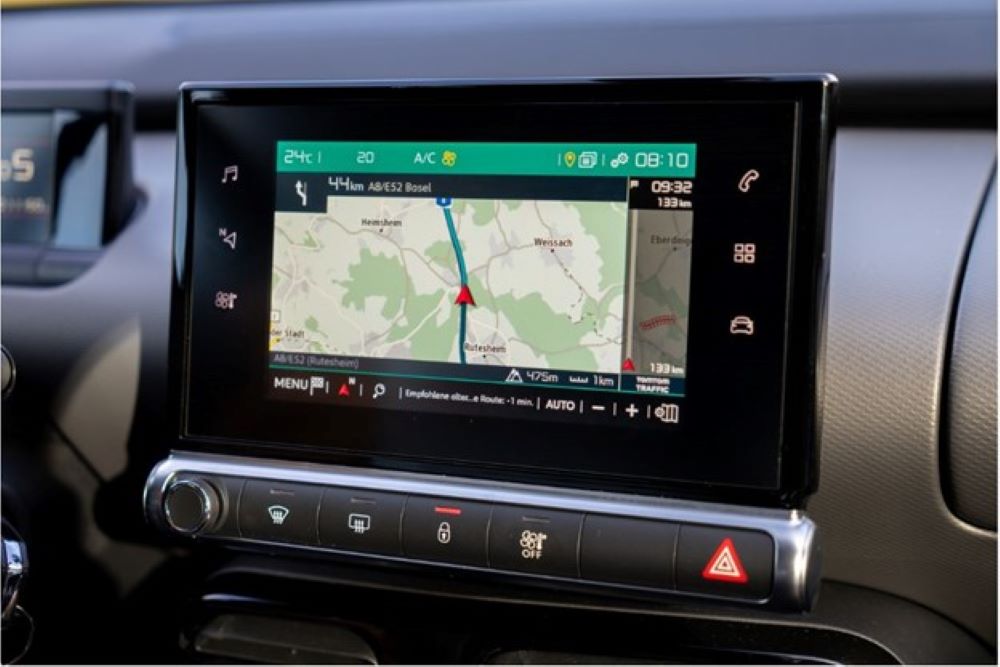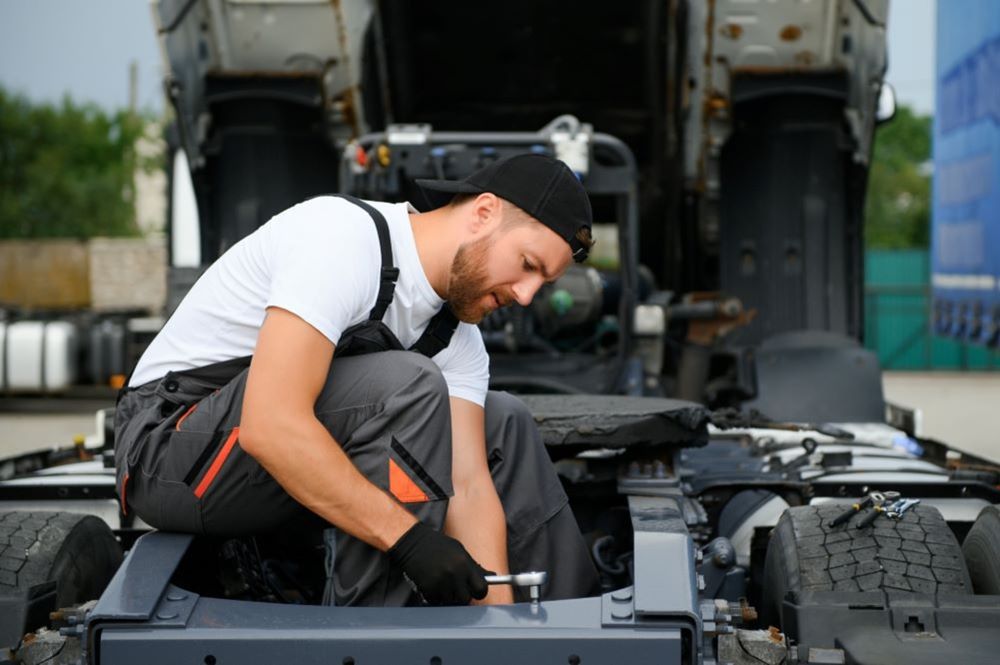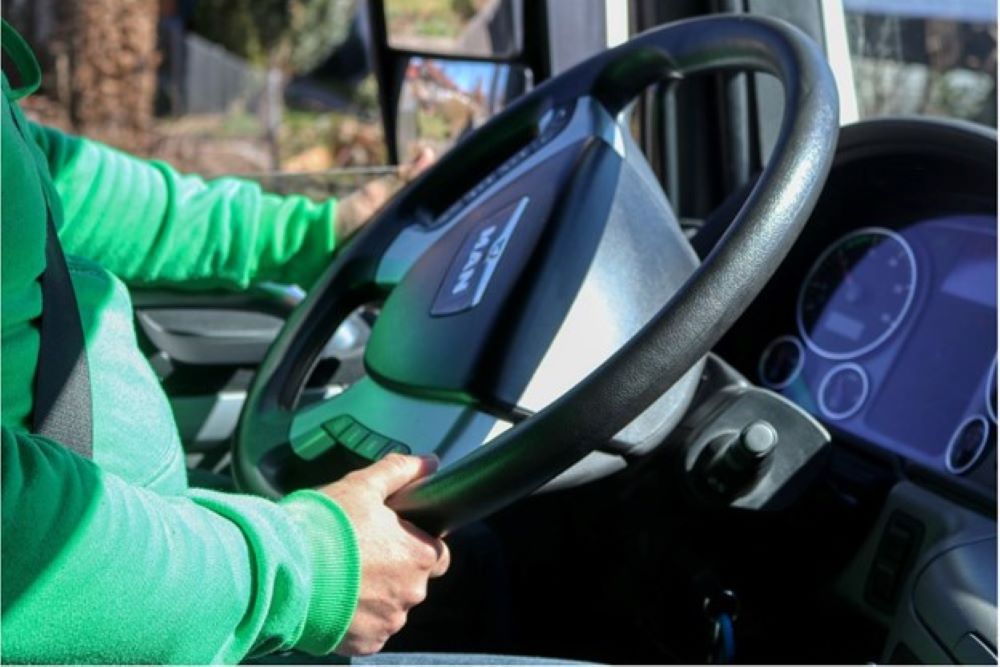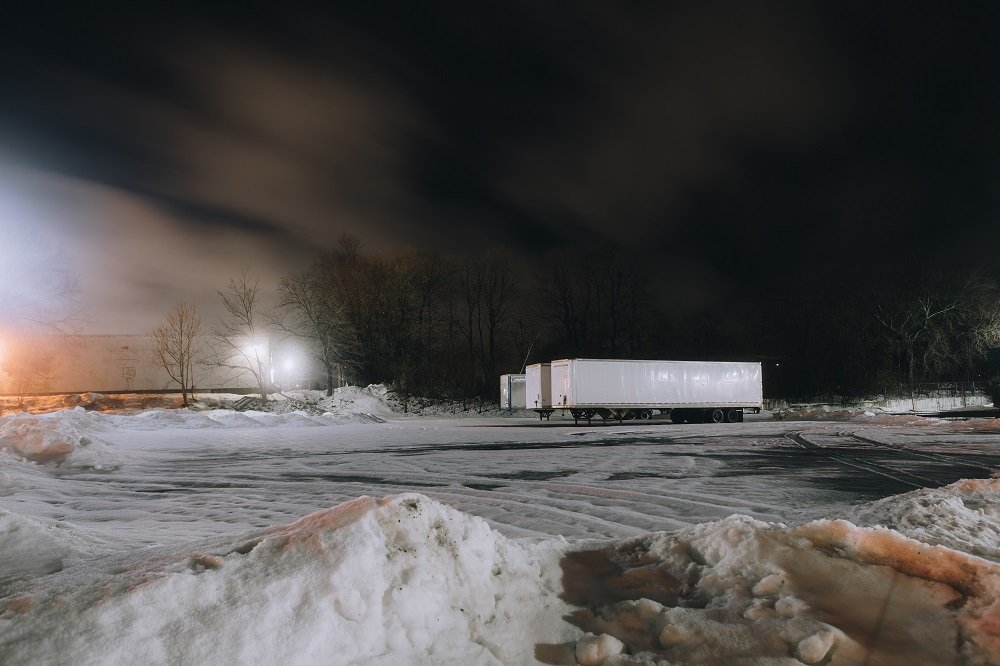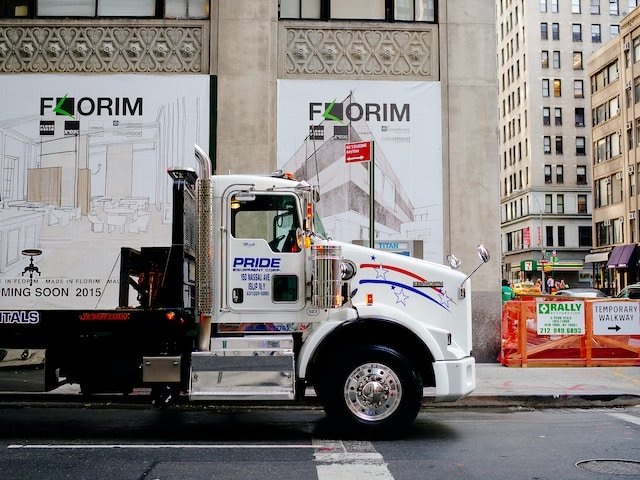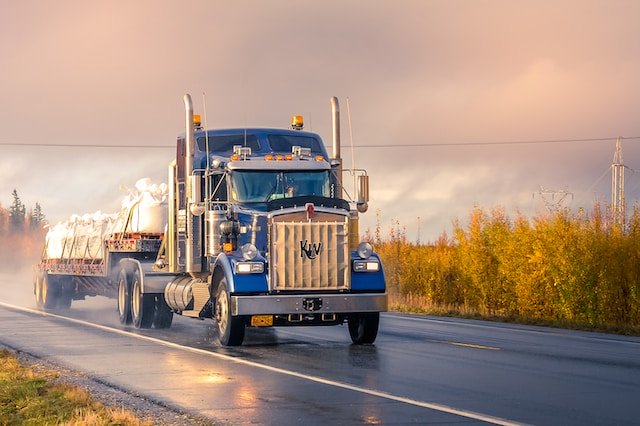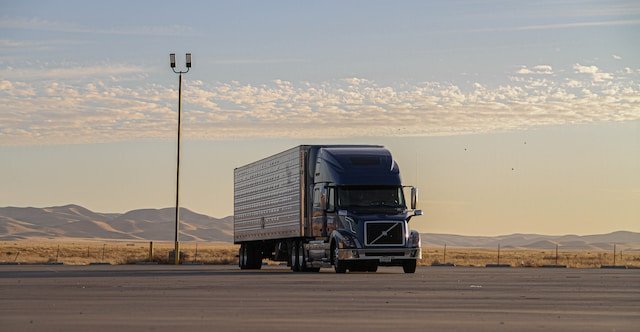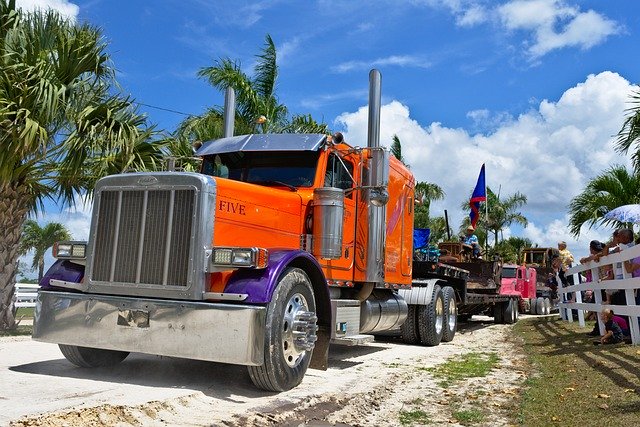Driving a commercial semi-truck can be a fantastic career for the right people. It lets you be your own boss, work independently, explore the country, and work in an industry with plenty of demand. However, driving a semi-truck also comes with its challenges.
While most people can pick up the skills and knowledge required for being a semi-truck driver, there are certain personality traits you’ll need to have to be successful in this industry. This guide explores some of the main requirements of being a semi-truck driver, including the pros and cons of this career path.
What Does a Semi-Truck Driver Do?
A semi-truck driver is a professional truck driver responsible for operating large commercial vehicles called semi-trucks. This typically involves transporting goods long distances and requires a specialized commercial driving license (CDL).
While that definition of a semi-truck driver is incredibly straightforward, a lot goes into driving and handling semi-truck deliveries.
Being a professional truck driver involves much more than having good driving skills and a basic understanding of commercial vehicle mechanics. Drivers play a vital role in the supply chain of many different industries, and they need to have a range of skills to help them remain successful on long trips.
Let’s list some of these commercial truck drivers’ main tasks and responsibilities.
Driving and Navigation
The primary responsibility of a semi-truck driver is to drive the semi-truck, or tractor-trailer, between goods. This is to transport goods from one place to the next.
Driving a semi-truck is challenging and involves navigating various terrains, highways, and urban areas. You’ll need to adhere to all local traffic laws and safety regulations. You’ll also need to understand the goods you’re hauling and ensure you drive safely so as not to damage these goods.
Loading and Unloading
Sometimes, semi-truck drivers may be responsible for loading and unloading cargo onto the trailer. However, at many shipping and receiving points, some specialized workers handle these tasks.
Whatever the case, truck drivers must have a solid understanding of the cargo they’re carrying and how to handle it. If the truck driver is responsible for handling the cargo, then they’ll need to have the right cargo handling equipment available.
Inspecting the Vehicle
Before starting a journey, the driver must perform pre-trip inspections to ensure the semi-truck works properly. This includes checking the brakes, tires, lights, and other essential components.
Being a semi-truck driver means you have a great deal of responsibility for managing an expensive vehicle.
Truck drivers should have a good basic knowledge of how their vehicle works and what the different components of the vehicle do. This will help you identify issues like bad shocks or a bad starter before they become serious problems.
Planning Routes
Drivers must plan their routes efficiently to reach their destination on time while considering road conditions, traffic, and weather.
The more experienced you are as a commercial driver, the better you’ll get at planning routes efficiently. While you can use GPS systems to help with this process, having plenty of experience driving the same routes enables you to make smarter decisions.
Of course, you’ll need to ensure that any route you take suits the size of your commercial truck.
Maintaining Records
Semi-truck drivers must keep accurate records of their driving hours, mileage, fuel consumption, and any incidents during their trips. This documentation is crucial for regulatory compliance and employer records.
For example, you might have to deal with a semi-truck accident or any unplanned incident on the road. Dealing with commercial insurance companies will require detailed records of the incident.
Following Regulations
Driving a semi-truck is different from driving a regular car. Truck drivers must adhere to various regulations, including hours of service rules, which dictate how long they can drive and when they need to take rest breaks to prevent fatigue.
This is all covered when you take your commercial driving license test. However, you must stay current with regulations in each state, as driving laws can differ from place to place.
Communication
Communication is vital for truck drivers. They need to stay in touch with dispatchers, shipping and receiving personnel, and their employers to provide updates on their progress and any potential issues.
Driving a truck is not just about moving goods from place to place – it’s about being a vital part of the supply chain. Many depend on semi-truck drivers to make timely deliveries, so keeping everyone updated is essential.
Safety and Security
Semi-truck drivers need to prioritize safety on the road. This means ensuring their cargo is secure and properly loaded to prevent accidents and damage during transit. It also means driving safely and considering all other road users.
Routine Maintenance
You can only be a semi-truck driver if you have excellent time management skills. Long-haul trucking often involves tight delivery schedules, so effective time management is crucial for meeting deadlines and customer expectations.
You’ll also need to keep calm under pressure, as you never know what could happen on the road that shortens your delivery schedule.
Time Management
You can’t be a semi-truck driver if you don;lt have great time management skills. Long-haul trucking often involves tight delivery schedules, so effective time management is crucial for meeting deadlines and customer expectations.
You’ll also need to be able to keep calm under pressure, as you never know what could happen on the road that shortens your delivery schedule.
Pros of Being a Semi-Truck Driver
Being a semi-truck driver may not be easy, but it’s a rewarding career for the right people. Here are some of the main advantages of becoming a semi-truck driver.
Job Stability
The trucking industry plays a crucial role in transporting goods across the country, so there’s always plenty of demand for truck drivers.
As long as you have proven yourself as a reliable semi-truck driver, work should always be available. This means truck driving can provide excellent job stability and security. The demand for truck drivers is continually growing.

Earning Potential
There’s no cap on what a semi-truck driver can earn. Experienced truck drivers who manage busy delivery schedules can earn a great income. Long-haul truck drivers could earn more due to longer distances and higher mileage pay.
There are also many different types of semi-truck businesses you could run. Once you’ve bought a semi-truck and have some experience in the logistics industry, many doors open up for career opportunities.
Independence
You’ll often work independently as a truck driver, spending long hours on the road without constant supervision. While this isn’t everyone’s ideal work environment, many people love it.
Being a semi-truck driver is an excellent solution if you want to be your own boss, work independently, and not worry about annoying coworkers or office politics.
Travel Opportunities
Forget about sitting behind a desk all day – being a semi-truck driver means you could travel all over the country.
Truck driving allows you to travel to different places and experience diverse landscapes and cultures all the time. No two days are the same, so it’s a great career path for anyone with a sense of adventure.
Quick Entry
Compared to many other professions, becoming a truck driver requires less time for training and certification.
You only need the correct commercial driving license to start hauling your first delivery. Of course, buying a truck and building up a client base may take a bit longer, but with the right approach, getting started as a truck driver can be much quicker than in many other industries. Instead of qualifications, hands-on experience matters the most.
Cons of Being a Semi-Truck Driver
While driving semi-trucks can be a fantastic career path, it also comes with challenges. Here are some main reasons that put people off becoming semi-truck drivers.
Extended Hours and Time Away
The biggest con of becoming a semi-truck driver is spending extended periods on the road.
The long hours spent truck driving can lead to fatigue and reduced time with family and friends. Long-haul drivers need to spend extended periods away from home, which can quickly result in burnout.
However, there are options for semi-truck drivers to run shorter routes to avoid extended time away from home.
Health and Safety Risks
Driving a truck involves spending long hours sitting still in a chair. If you can’t exercise enough or eat healthy meals, this could cause some health concerns.
Commercial truck driving can also be hazardous, with many potential risks from accidents, adverse weather conditions, and other road users. If you aren’t prepared for all driving conditions or start getting tired behind the wheel, you face severe safety hazards.
Isolation and Loneliness
Spending extended periods alone on the road can make semi-truck drivers feel isolated and lonely. If you’re a particularly social person, driving a semi-truck might not be for you – especially if you plan long-haul trips.
Regulations and Stress
Truck drivers must adhere to strict regulations concerning driving hours, rest breaks, and cargo transportation. Violating these regulations can lead to fines or legal consequences.
Truck drivers who aren’t good at managing their schedules could be tempted to overlook specific regulations that could put them in danger.
How to Become a Semi-Truck Driver
Becoming a semi-truck driver is a fairly straightforward process. While the exact steps may look slightly different based on the type of truck you drive, where you operate, and what you plan to carry, here is a general outline of the process:
- Basic requirements: First, you must be at least 18 or 21 years old for interstate driving. You’ll need a clean driving record and might have to pass a background check and drug screening.
- Get a Commercial Driver’s License (CDL): To operate a semi-truck, you’ll need a Commercial Driver’s License (CDL). You’ll first need to get a CDL learner’s permit, then enroll in a CDL training program at truck driving school. After completing the CDL skills test, you can obtain your license. The exact process and rules for getting these licenses can differ from state to state.
- Gain experience: Most trucking companies require some driving experience before hiring new drivers. You’ll start in entry-level positions, like local delivery or short-haul routes, to gain experience.
- Consider endorsements: Endorsements extend the possibilities of your CDL and truck driving career. Consider obtaining extra endorsements on your CDL to expand your job opportunities, such as HazMat (Hazardous Materials), Tanker, and Doubles/Triples.
- Apply for jobs: Being a semi-truck driver involves spending plenty of time applying for truck driving jobs that match your qualifications and preferences. Understand the different types of trucking jobs, such as long-haul, regional, and local routes, and consider specializing in a specific area.
The more experience you build up as a professional truck driver, the easier it will be to take on more jobs, start a semi-truck business, and make more money.
Conclusion
There are many different avenues potential truck drivers can follow. This includes driving short local routes or hauling goods across the country.
Whatever type of semi-truck business you get involved in, it’s important to understand the pros and cons of being a driver and exactly what is required in driving professionally. Becoming a truck driver can be highly rewarding if you can work with the cons of this career.
One of the most important steps in developing your semi-truck career is owning your semi-truck. This can help you become your own boss and start working on your own terms.
At Mission Financial Services, we help all kinds of drivers secure financing for their ideal semi-truck. Get in touch to see how we can help boost your professional driving career.

